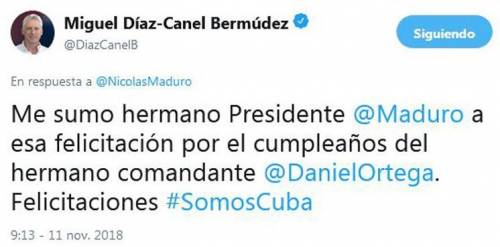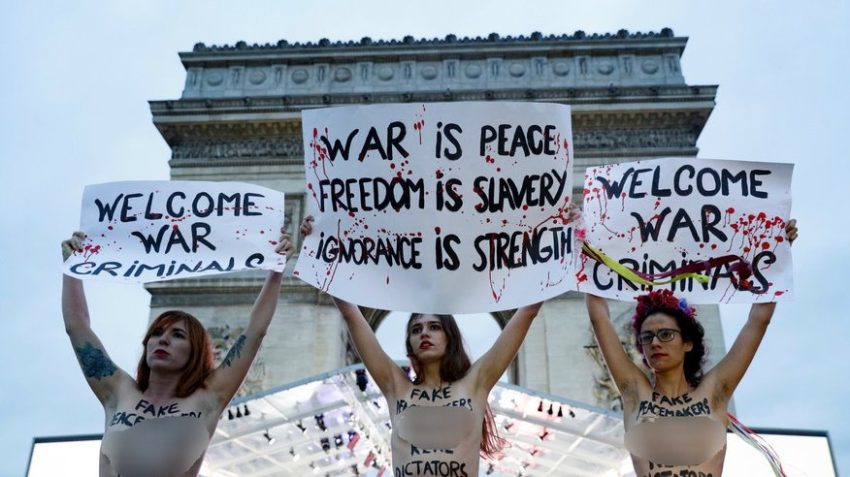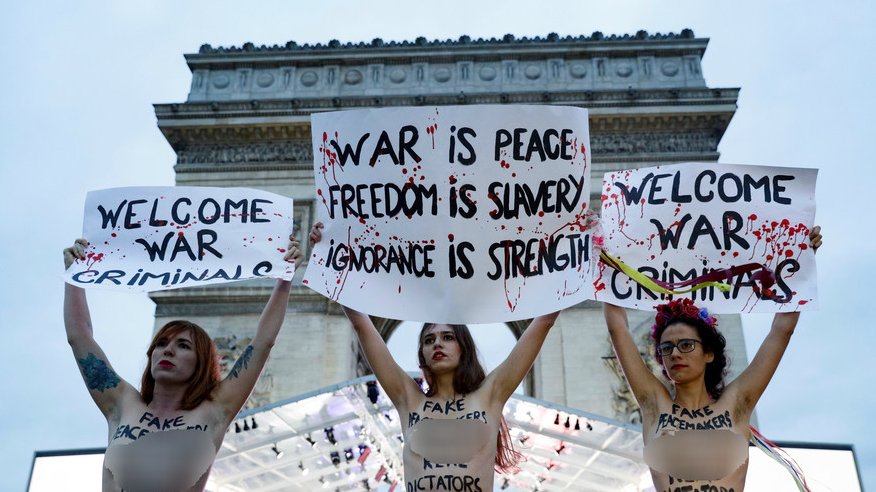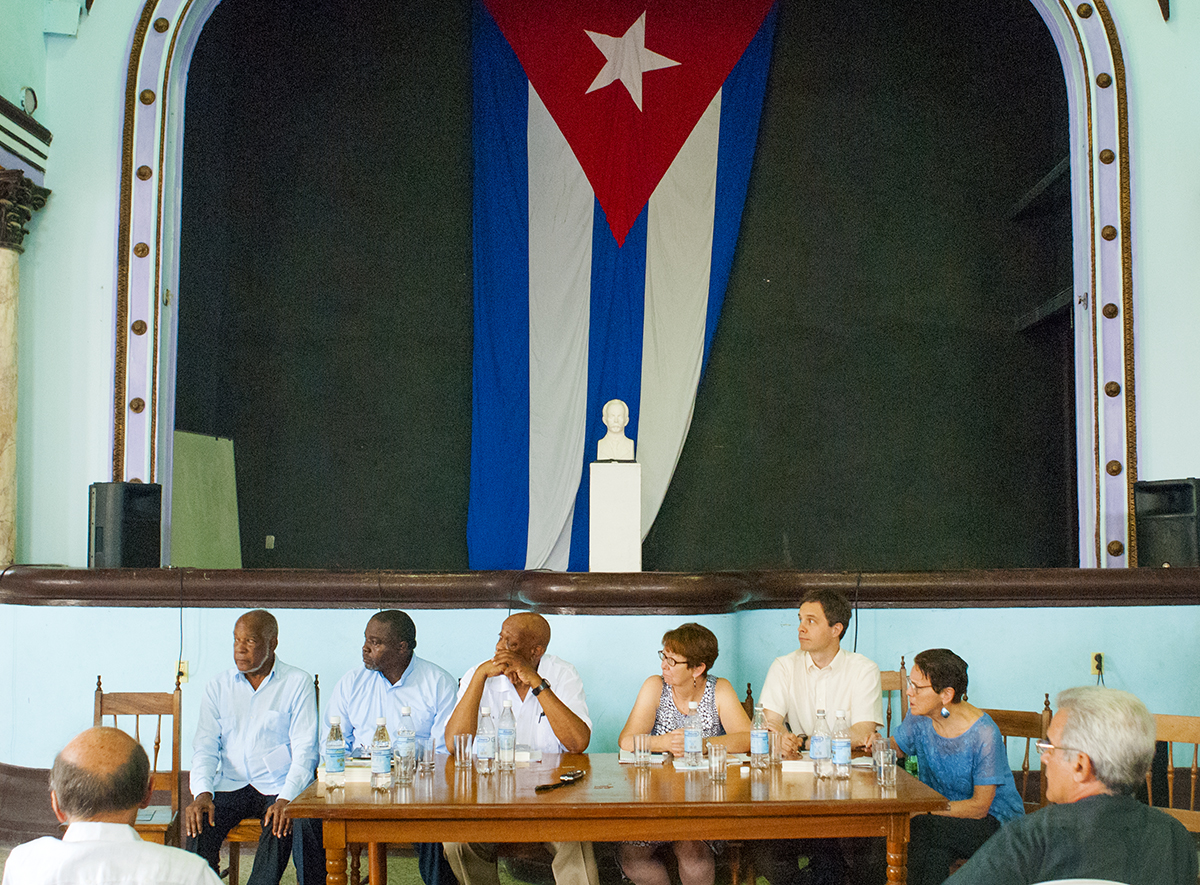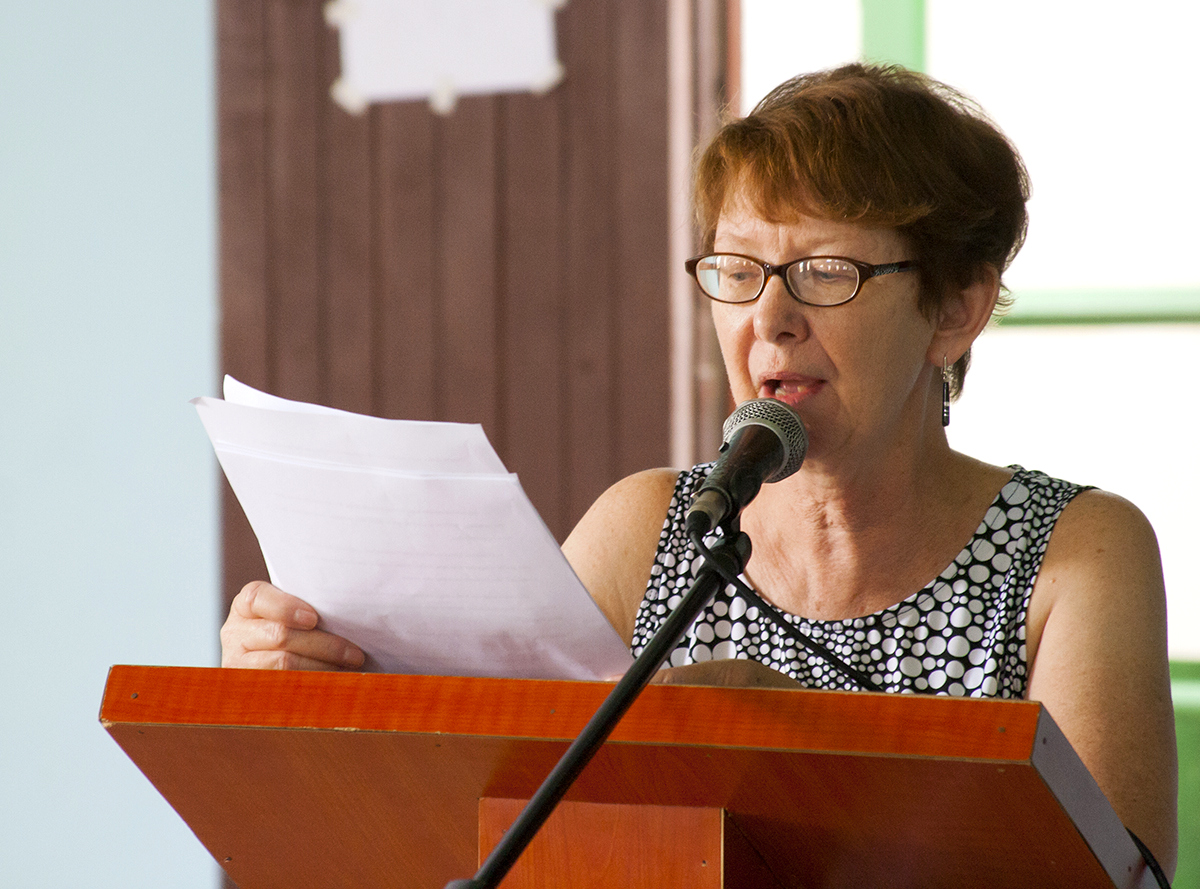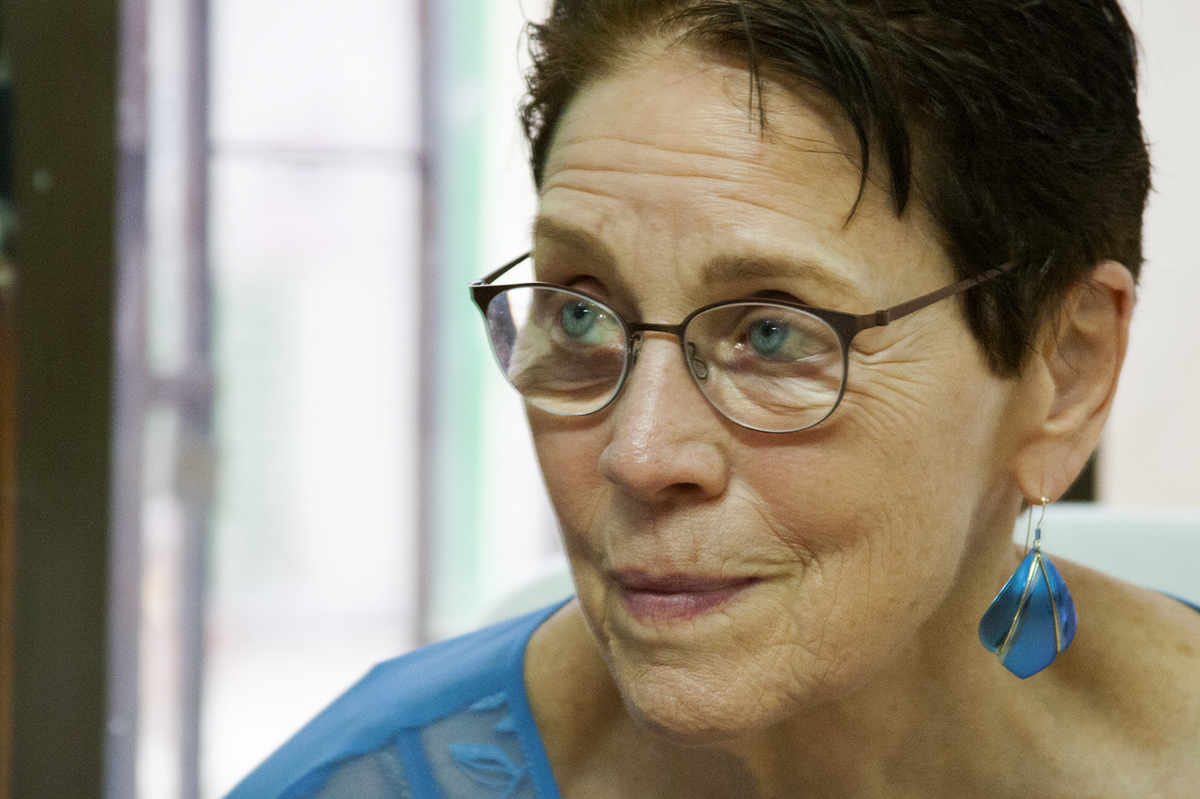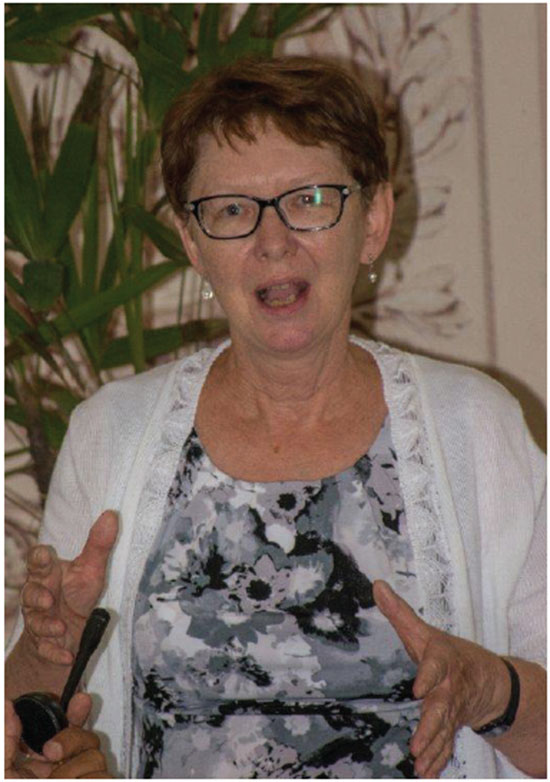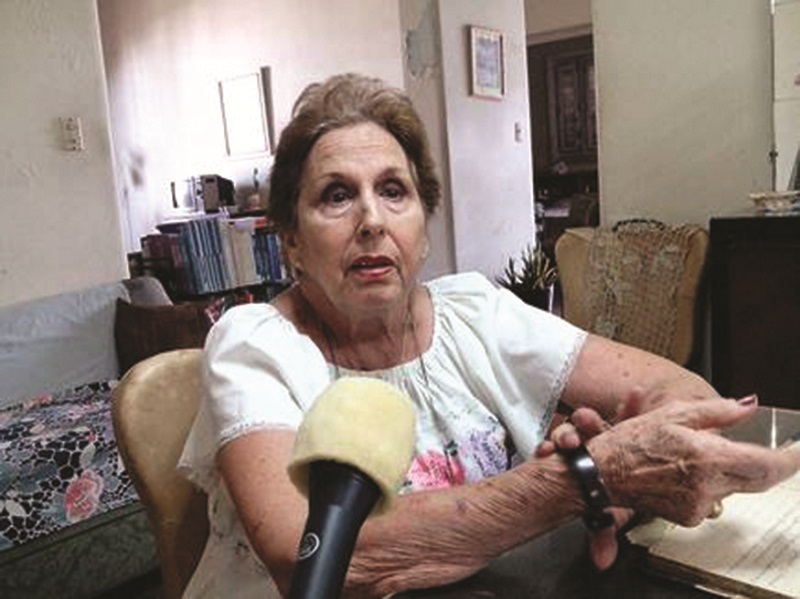Juventud Rebelde 221
MDC Birthday Greeting to Daniel Ortega

Cuban President congratulates Daniel Ortega on his birthday
«I join my brother President Maduro to that congratulation for the birthday of Brother Daniel Ortega. Congratulations, “he wrote on his Twitter account , shortly after the Venezuelan leader congratulated the president
 By Juventud Rebelde
By Juventud Rebelde
digital@juventudrebelde.cu
A CubaNews translation.
Edited by Walter Lippmann.
VIENTIANE, November 11.- Cuban President Miguel Díaz-Canel congratulated his Nicaraguan counterpart, Daniel Ortega, on his 73rd birthday this Sunday.
“I join my brother President Maduro in congratulating him on the birthday of his brother Commander Daniel Ortega. Congratulations,” he wrote in his Twitter account, shortly after the Venezuelan leader congratulated the president.
Diaz-Canel is touring Europe and Asia and is in Laos this weekend, PL said.
A Memorandum of Understanding on cooperation between the Bank of the Lao People’s Democratic Republic and the Central Bank of Cuba was signed on this day in the presence of President Miguel Díaz-Canel Bermúdez and his Laotian counterpart Bounnhang Vorachith.
In another tweet Díaz-Canel stated that “we celebrate in Laos the 50th anniversary of the National Liberation Forces Command. It was in the legendary caves of Viengxay, where our doctors consolidated the unbreakable friendship of our peoples.
Youth and Beauty At All Costs?

Youth and Beauty at All Costs?
Since 2011 there has been an increase in the number of people attending plastic surgery services in Cuba, who should be aware that this type of intervention is not without risks.
Posted: Saturday 29 September 2018 | 10:15:43 pm.
Author: Ana María Domínguez Cruz
digital@juventudrebelde.cu
A CubaNews translation.
Edited by Walter Lippmann.

Since 2011 many people have turned to plastic surgery services. Author: Falco Published: 29/09/2018 | 10:03 pm
Aesthetics and health. The debate is still endless because the search for beauty, beyond the superficial, can also be a guarantee of emotional health, psychological stability, high self-esteem and general well-being.
Plastic surgery professionals also work in the field of reconstructive surgery and caumatology, and say that in the first place the safety of the procedure and the training of the professionals who put it into practice should be paramount.
According to data released at the 2nd Congress of the Cuban Society of Plastic Surgery and Caumatology, held from September 5 to 7 on the Island, from 2001 to 2016, 309,469 plastic surgeries were performed in Cuba The majority (200,508) were aesthetic and the rest reconstructive.
They added that there is a considerable increase every year starting in 2011, which places us in line with the rest of the world, where each time the number of people who come or need this specialty grows.
Dr. Ariel C. Prada, a third-year resident in Plastic Surgery and Caumatology at the Hermanos Ameijeiras Clinical Surgical Hospital, recently arrived at the Multimedia Editorial Office of Juventud Rebelde to answer questions related to the discipline in the country, its potentialities and perspectives, as well as its risks and complications.
The professor instructor and editor of the magazine Cirugía Estética y Reparadora [Esthetic and Reparative Surgery] clarified not a few doubts of our readers -some teenagers and young people-, from whom we offer a selection.

Dr. Ariel C. Prada, third year resident in Plastic Surgery and Caumatology, Hospital Clínico Quirúrgico Hermanos Ameijeiras. Photo: Roberto Ruiz
Lissa: What are all the plastic surgery services that we can access for free?
Ariel C. Prada (ACP): You can access all plastic surgery services (including cosmetic surgery and reconstructive surgery) free of charge, after a medical assessment to determine whether or not you qualify for that intervention. There are procedures in which alloplastic materials are used (breast implants, buttocks, etc.) that in the case of cosmetic surgery must be acquired by the patient, having first the indication of its model and volume by the plastic surgeon.
Susel: Is it necessary to be of legal age to access an operation or is it only possible with the authorization of the legal guardian?
ACP: Like any medical-surgical procedure it has a legal background and risks. If you are a minor must have the approval of parents or legal guardians. We do not know the nature of the procedure you wish to be performed, but we always recommend that, if it is not strictly necessary, you wait until the age of majority, either to seek better aesthetic results or because they are purely elective surgical interventions (cosmetic surgery), not essential for your life. Remember that undergoing surgery, in this case, is a very personal decision that requires full awareness and maturity.
Hope: I want to remove the “crows feet”, a little fat from my belly, my neck wrinkles … How many cosmetic surgeries can a person do, and how long should you wait between one and another?
ACP: There is no specific number of cosmetic or reconstructive surgeries that can be performed on a person. Above all, it must be evaluated by a specialist, who will determine, according to his opinions, which is the best aesthetic option, according to factors as varied as the type of patient, age, basic diseases and magnitude of the procedure, among others.
“Our specialty is a complement to improve the quality of life of people. Thus, it in no way replaces healthy habits such as a good diet, avoiding toxic habits or frequent physical exercise. In fact, many times our intervention is not necessary or its magnitude decreases, with much better results. The patient must be aware and responsible for their own health, to have lifestyles that maintain the results of the procedure performed.
Yaima: I have black skin, am 52 years old… Does race influence this type of surgery?
ACP: In medicine, and particularly in plastic surgery and caumatology, one of the elements taken into account is the racial biotype. Age is also a factor that is considered depending on the patient’s desire.
Iris: How is the procedure so that a woman who was operated on a radical breast can have access to the reconstruction of this part of her body? Where should she go?
ACP: Surely you were seen in a center with oncology service. Your oncologist, after considering that you are free of the disease (at least for a year) can refer you to a reconstructive surgery service, either in an oncology hospital or clinical-surgical, to begin the process of breast reconstruction which can be done in several stages.
“The National Breast Cancer Program contemplates the free reconstruction of all women affected by this pathology, with quality and first-class breast implants in centers such as the National Institute of Oncology and Radiobiology (Havana), Hermanos Ameijeiras Clinical-Surgical Hospital (Havana) and Conrado Benítez Oncological Hospital (Santiago de Cuba). You should consult with your oncologist in which center, according to the regionalization of health services, you should be treated.
Carmen: Those of us in our third age can opt for simple procedures, such as, for example, one that allows us to lift our drooping eyelids?
ACP: Although there are “simple procedures”, all require the expertise, experience and “aesthetic vision” of a plastic surgeon. We mean that there are sick people, not diseases (an old medical adage). Therefore, each treatment must be individualized, because what a patient requests is not always the best aesthetic or technically possible option.
“In the elderly, we must take into account the compensation of their basic illnesses, because we are talking about purely elective procedures, in which the risk must be minimal and the benefit, the highest possible.
Yeny: What practices should a patient follow after having a lipectomy*? How long should she wait to perform physical exercises and which are the most recommended? Is it normal to feel punctures in the abdominal region two years after this type of surgery has been performed?
ACP: First of all, you must have followed the indications of the plastic surgeon who operated on you, because s/he knows the characteristics of the patient, the details of his procedure and therefore the limitations and possible evolution, among others.
“Generally, three months after the operation, as long as they have not been complex dermolipectomies, patients can gradually resume themselves into their lives fully, without excesses. Physical exercises should be dosed and increased progressively. Aerobes and any activity that tones the muscles improve the results of the procedure. Consult your surgeon about the symptomatology presented, because s/he will surely offer you a more exact explanation and a solution.
The returning breast
Surgeries do not replace healthy lifestyle habits, but they are a choice many make.
When we speak of plastic surgery, the term also includes reconstructive surgery, which guarantees not only an aesthetic result, but also the return of function to the affected area.
In this sense, Dr. Yamilé León Rodríguez, who works at Hermanos Ameijeiras Hospital, tells Juventud Rebelde that oncological, traumatic or congenital deformities in the face, in the breast due to cancer and ulcers in dissimilar parts of the body, among others, are treated in this way.
“We have a multi-disciplinary breast cancer care group that includes oncologists, mastólogos, radio-oncologists, imageologists, psychologists, psychiatrists and specialists in reconstructive plastic surgery, who enter the process after it has been decided how the ablative surgery of the patient will be conducted.
“The defect to be corrected may be in the breast, when a partial or total removal of an organ or body tissue is performed in a radical mastectomy, or to correct a defect that remains in the chest wall, as a result of an ablation of a large tumor.
“We have developed several techniques, including reconstruction with the local tissues of the breast, with muscles, especially the abdominal rectum and the broad dorsal, as well as through flaps obtained from the abdomen, or the novel technique applied in the country of the sentinel ganglion, which determines the degree of spread of cancer.
León Rodríguez points out that patients of different ages, from 18 to 85 years old, have been treated with this type of aesthetic reconstruction. “The results show that it is not mandatory to perform total exeresis and that the subsequent reconstruction, with or without the use of prostheses, gives the woman back one of the classic attributes of femininity”.
Perfect face!
Rhinoplasty is a complex but generally not life-threatening procedure.
Dr. Julio Cesar Galvez Chavez recognizes that in the desire to look younger, more and more patients come to his office. They should know that there are also selection criteria for cervicofacial rejuvenation surgeries.
“If there are signs of aging, then we can consider this type of surgery. We can find these elements in young people, perhaps because they have very white skin. In general, however, we perform them in patients over 40 years and up to 60, although the age limit is not as determinant as physical conditions and health.
“Many people believe that this is a magical intervention that will return them to the freshness they had at 15 years. This isn’t so, because, although it is guaranteed to make you look younger, you can’t turn back the clock.
The fundamental motivations for performing a surgery in the environment of cervicofacial rejuvenation are related to the fall of the eyebrows, the appearance of horizontal or transverse wrinkles in the eyebrows, the excess of skin on the eyelids and the appearance of fat pockets in that area, the loss of the contour of the jaw and the presence of the so-called marionette lines, the fall of the chin and the loss of angularity in the neck, among others.
Gálvez Chávez is also an expert in rhinoplasty, an aesthetic procedure indicated for those who wish to modify the size and shape of their nose as well as to improve their respiratory function in case of deformities in their septum.
“We perform reductive rhinoplasty in those noses of large dimensions and augmentative for flat or underdeveloped. In addition, we can make other procedures to model or perfect the features according to aesthetic patterns worldwide, either in the tip of the nose, the wings, the back, the nostrils and in general in all regions of the nose.
“Rhinoplasties are not recommended for people over 40 years of age because the skin’s ability to adapt to structural changes is important. This is most noticeable before the age of 30,” says the specialist, who notes that, although vital rules of care must be respected after rhinoplasty, it is not a life-threatening surgery.
Molding the body
How many people yearn for an aesthetic surgery after which they will look slim and slender? Dr. Heizel Escobar Vega, a specialist at the Hospital Clínico-Quirúrgico Hermanos Ameijeiras, states that this is the main reason why patients come to her practice. They ignore the fact that liposculpture is not a method for treating obesity.
“Liposculpture is the surgical treatment we perform to treat the areas of the body where fat deposits are found, such as the abdomen, the trochanteric regions and the arms, among others. Not only is it a question of removing those fat accumulations, but also of performing the lipo-injection in other areas in which they are desired.
“With this procedure, we obtain a corporal mold, as much in men as in women. Lately, they want to lose fat, in the abdomen and lumbar regions. They also request high definition surgery to obtain the well-known “squares”, an increased request also in recent times in the female population”.
Escobar Vega insists that not everyone can be a candidate for this surgical intervention. “We are rigorous in the selection of patients. Although people generally think that it is a simple surgery, due to the fact that it is among the most performed globally, it is certainly one of the riskiest and has the highest mortality associated with it, depending on the time and volume of fat extracted. Moreover, its realization leads to the modification of the metabolic, biochemical and hepatic mechanisms of the organism.
“Follow-up after surgery is essential, and the patient must respect the measures indicated by his attending physician.
Dr. María del Carmen Franco Mora is a specialist at the Juan Bruno Zayas General Hospital in Santiago de Cuba. She explains that the demand for gluteal lipo-injection has grown, a procedure that requires prior liposuction or liposculpture, from which the fat extracted is injected into that area of the body.
“The most frequent general complications are associated with the most feared, ranging from fatty and pulmonary thromboembolism, septic shock and severe anemias, to local infection and hematomas, among others.
“The criteria established for the classification of the patient must be very respected. We do not operate on people with a body mass index above 30 until they lose weight before, nor on those with a history of thrombotic diseases in lthe ower limbs or with the presence of varicose veins, nor on those who take oral contraceptives, among other exceptions”.
An American Tragedy Multiplied

An American Tragedy Multiplied
Ex-marine kills 12 people in a California bar and apparently commits suicide.
Posted: Thursday 08 November 2018 | 10:17:27 pm.
 By Juana Carrasco Martin
By Juana Carrasco Martin
juana@juventudrebelde.cu
A CubaNews translation.
Edited by Walter Lippmann.

The National Rifle Association champions like Pedro for his house. Author: wp Published: 08/11/2018 | 10:05 pm
It’s not Theodore Dreiser’s novel, An American Tragedy, but murder is in the plot and it’s a real tragedy that shakes American society almost daily. Thirteen people, including the attacker, died when the victims assumed that on Wednesday night they would celebrate with country music at the university students’ favorite bar in the town of Thousand Oaks, a suburb of affluent residents northwest of Los Angeles, considered the third safest in the United States.
In cold blood, as Truman Capote’s documentary novel is titled, the Borderline Bar & Grill killer, a 28-year-old ex-marine suffering from post-traumatic stress, indiscriminately fired at least three extended magazines of his Glock 21, 45 caliber automatic pistol after throwing smoke grenades. The gun had been legally purchased…
Twenty-two other people were injured by bullets or injuries during the hasty escape to avoid the shots of Ian David Long, a young man described as angry and irrational by the police who came to his house last April for complaints of disturbance of order and were already known to the authorities by two other violent altercations.
At the first call for help, at 11:20 p.m., a sergeant from the sheriff’s office and an officer from the Road Patrol came immediately to try to “neutralize the threat. They were shot and Sergeant Ron Helus fell, with 29 years of service and only five months to his retirement.
“It’s a horrible scene. There’s blood everywhere,” Sheriff Dean told reporters. Some of the celebrating students were known to have survived the massacre at the Harvest Music Festival in Las Vegas, a massive country concert in which 58 people died and more than 500 were injured on October 1, 2017, under the gunfire of Stephen Paddock, a sober and healthy 64-year-old man.
Just ten days before the new massacre, the “safe” Thousand Oaks, an ultra-massacre of 11 faithful at a synagogue in Pittsburgh, Pennsylvania on Oct. 27; and just a week ago another individual fired on a yoga gym in Tallahassee, Florida, killing two women, injuring others.
According to the Gun Violence Archive – a nonprofit group that tracks these incidents on a daily basis – between January 1 and October 31, 2018, there have been 47,467 firearm incidents and 12,183 people killed, 23,759 injured, 560 of the fatalities were children, 2,370 teenagers, 1,701 were armed home invasions, 1,502 incidents used weapons as a defense, 1,332 were unintentional shootings and 301 mass shootings.
Already those numbers are history past, the numbers have increased. In the first eight days of this November, the United States has witnessed six mass shootings (description for those occurrences in which four or more people have died, not including the gunman), bringing the mass shootings to 307.
Alarms ring again and again, an increasing proportion of Americans are calling for laws that effectively limit or control gun ownership – there are at least 310 million in the possession of the nearly 325 million people, approximately 89 weapons for every 100 people, and a total of 48 percent of the 650 million weapons held by civilians worldwide.
Only 27 words of their Constitution give them that “right” and justify a culture of extreme violence, which is officially deployed with organization and participation in almost every war that occurs in today’s world.
However, President Donald Trump and many of the legislators are deaf to the petition.
After the Thousands Oaks event, Trump, in his usual way of “facing” the problems, immediately tweet: “I have been fully informed of the terrible shooting in California (…) God bless the victims and relatives of the victims. Thanks to law enforcement.
The National Rifle Association champions like Peter for his home. In 2017 weapons were sold in the United States for $41.93 billion, the same revenue as Facebook. Everything is resolved.
At Least 11 Killed in Pittsburgh Synagogue Shooting

At Least 11 Killed in Pittsburgh Synagogue Shooting
Trump calls for strengthening the death penalty and says if the temple had had armed protection, the tragedy would not have occurred.
Posted: Saturday 27 October 2018 | 07:05:43 pm

By Juventud Rebelde digital@juventudrebelde.cu
A CubaNews translation.
Edited by Walter Lippmann.

The attack is considered a hate crime and constitutes a federal violation. Author: Taken from the Internet Published: 27/10/2018 | 06:58 pm
Trump calls for strengthening the death penalty and says that if the temple had had armed protection, the tragedy would not have occurred.
The gunman also shot at the police officers who came to face him and four of them were also wounded, local KDKA reported. It described the suspect of this hate crime as a white man with a beard, 48 years old, who was wounded in his confrontation with the SWAT team.
The attack occurred during Shabbat services at the synagogue that was filled for that weekend ceremony, and the perpetrator apparently lives in a nearby apartment. Police are also investigating whether Bowers announced his intentions in social media on Saturday morning. His account appears to have been withdrawn.
One of the messages on that account said, “HIAS [the Hebrew Immigrant Help Society] likes to attract invaders to kill people. I can’t sit back and watch my people get killed. Screw on your optics, I’m going in.
The Gab.com website, which describes itself as “The Home of Online Freedom of Expression,” rejected claims that it was responsible for the shooting after it confirmed that the name identified in media reports as the suspect matched the name of an account on its platform.
The site’s statement states that “Gab.com’s policy on terrorism and violence has always been very clear: we have no tolerance for it. Gab unequivocally disapproves and condemns all acts of terrorism and violence. This has always been our policy. We are saddened We are saddened and disgusted by the news of violence in Pittsburgh and we keep the families and friends of all victims in our thoughts and prayers.
The FBI is spearheading the investigation into what happened because it is considered a hate crime and a federal violation.
According to KDKA Pittsburgh, President Donald Trump, who advocates the possession of weapons in civilian hands and refuses to endorse any legislation that limits it, said that if the synagogue had had armed protection, things would have been different.
The president added, “It’s a terrible thing that’s happening with hatred in our country and, frankly, all over the world, and something must be done.
Speaking to reporters at Andrews Air Force Base on the way to Indianapolis, Trump added, “I think one thing we should do is strengthen our laws on the death penalty. When people do this, they should get the death penalty and not have to wait years and years.
HispanTv cites statistics provided by the Gun Violence Archive (GVA) on gun violence in the United States so far in 2018, with 11,980 people killed and 23,332 injured in shootings.
Youth Forum on Cuban Revolution’s History

Youth Forum on Cuban Revolution, 60 Years of History
The Forum will be organized around keynote speeches, central panels and workshops.
By Juventud Rebelde digital@juventudrebelde.cu
Posted: Friday 09 November 2018 | 10:06:51 pm.
Updated: Friday 09 November 2018 | 11:15:13 pm.
A CubaNews translation.
Edited by Walter Lippmann.
The triumph of the Cuban Revolution in January 1959 opened a new stage for national liberation movements. On an international scale, the humanist, anti-capitalist and anti-imperialist content, present in the important work of social transformation, modified collective images, reshaped politics and showed a cultural horizon that aspired to the complete emancipation of women and men.
Returning to the origins of that thought and practice is fundamental. Sixty years after that significant January 1st, the Young Communist League, student organizations, youth movements, with the support of the Publishers Abril and Ocean Sur, announce the Cuban Revolution Youth Forum, 60 years of history.
In a note sent to our editorial office, the 11 main themes of the meeting are specified, among which they are: The thoughts of José Martí, Fidel Castro, Raúl Castro, Ernesto Che Guevara and other figures; the United States-Cuba conflict; the historiography of the Cuban Revolution in power; the evolution of economic thought within the socialist transition, and the social policy of the Cuban Revolution.
The other topics of the forum will be: The international politics of the Cuban Revolution; the impact of social transformations in the last 60 years; institutionality, participation and socialism; social sciences in the Revolution; Marxism in the Cuban Revolution, and revolutionary journalism.
The event, which will take place on January 16, 17 and 18, 2019, in Havana, will be open to social scientists, teachers and university students, as well as other professionals who are linked to the topics they intend to address and have up to 35 years of age.
Those interested in participating should take into account the following requirements: send the abstracts of the works by e-mail (forojuvenil@ujc.cu), for evaluation by the organizing committee, before November 30, 2018; the abstracts will not exceed 250 words. They will be accompanied by the author’s general data including his location, the title of the paper and key words, and if accepted, before December 15 the papers will be sent for inclusion in the proceedings of the event.
It is also required that the Publishers Abril and Ocean Sur have the materials presented for the edition of a printed volume with a selection of these, while the Organizing Committee reserves the rights of admission to the Colloquium and will bear the costs of food and lodging for participants who are not from Havana.
The Forum will be organized from master conferences, central panels and workshops.
Big Fires in Los Angeles

Big Fires in Los Angeles Force Hundreds to Evacuate
For his part, U.S. President Donald Trump has reacted by blaming Forest Services for not managing the fire well and threatened to withdraw funds for this type of services in his country.
Posted: Saturday 10 November 2018 | 09:57:08 am. Updated: Saturday 10 November 2018 | 09:41:33 am.
By Juventud Rebelde
digital@juventudrebelde.cu
A CubaNews translation.
Edited by Walter Lippmann.
Two major fires, one at the gates of Los Angeles and another in the Malibu area, have forced the evacuation of hundreds of people in the area, international media report.
In the north, at least nine people have died in a fire that has destroyed 36,000 hectares in the town of Paradise. Five of the victims were surprised by the flames inside their vehicles as they tried to flee the lit area.
More than 6,400 houses had been destroyed as of Friday night, more than 50,000 people had been evacuated, according to the Spanish daily El País.
On the coast of Los Angeles, a fire that began Thursday morning has forced the evacuation of the entire population of Malibu.
US President Donald Trump, for his part, has reacted by blaming Forest Services for not managing the fire well and threatened to withdraw funds for this type of service in his country, reports PL.
Welcome, war criminals!

Welcome, war criminals!
Activists welcome with protests world leaders who will celebrate in Paris the centenary of the end of World War I.
By Juventud Rebelde
digital@juventudrebelde.cu
Posted: Saturday 10 November 2018 | 11:05:19 pm.
Translated and edited by Walter Lippmann for CubaNews.
Edited by Walter Lippmann.
PARIS, November 10. – Three activists from the radical feminist organization FEMEN were arrested in this capital last Saturday after an action under the Arc de Triomphe in which they accused the world leaders gathered in France to commemorate the end of the First World War of “hypocrisy” and “war criminals,” including U.S. President Donald Trump.
The women, with their breasts in the air -characteristic of the demonstrations of this group that was born in Ukraine-, jumped from a car in the Place de l’Etoile and climbed the barriers of the platform where 70 high international guests are expected to attend the ceremony this Sunday, November 11, which marks the centennial of the armistice.
Beneath this famous Arc de Triumph lies the Tomb of the Unknown Soldier – an anonymous human being among the ten to 31 million people who died in that global conflict. The signing of the armistice between Germany and the Entente countries that took part in that holocaust is commemorated there every year, and this year 2018 acquires a special connotation.
With flowers in their hair and the accusatory phrase “False pacifists, royal dictators” painted on their torsos, the women raised posters with the legend in red blood: “Welcome war criminals”.
Another sign cited the famous mantra in George Orwell’s 1984 novel: “War is peace. Freedom is slavery. Ignorance is strength.
President Donald Trump, who has already met at the Elysée Palace with French host Emmanuel Macron, and the media say differences arose, also received a response on Twitter this Saturday from British politician and Winston Churchill’s grandson, Nicholas Soames, because the American president canceled his scheduled visit to the American cemetery and memorial of Aisne-Marne, in northern France, under the excuse of “logistical difficulties caused by the climate,” according to a White House statement cited by The Hill.
@NSoames was categorical in his tweet: “They died in the face of the enemy and this pathetic and inadequate @realDonaldTrump cannot even defy the climate and pay his respect to the fallen,” to which he added this hashtag on Trump: #hesnotfittorepresenthisgreatcountry.
Apparently, instead of Trump and his wife Melania, the White House Chief of Staff, John Kelly, and the Joint Chief of Staff, General Joseph Dunford, will attend the Aisne-Marne memorial. This cemetery is at the foot of the hill where the Battle of Belleau Forest was fought, in which some 2,000 U.S. Marines died in June 2018.
According to The Guardian, among veterans groups, a progressive organization, VoteVets, responded angrily in a tweet: “Donald Trump complained that he had to stand in the rain to talk about the Pittsburgh massacre, because he ruined his (more) hair,” referring to Trump’s comments after a massive shooting in a synagogue two weeks ago in which 11 people died. “Today, he will fail to honor the fallen American heroes of World War I and stay in his hotel room because of some rain.
When French President Macron visited the White House in April of this year, he brought Trump a tree from the Belleau Forest as a gift, but the shoot was briefly an object of intrigue when it disappeared from the White House lawn where Trump and Macron had planted it, The Guardian reported, but it was later revealed that they had been temporarily removed for quarantine.
As for the differences demonstrated in the meeting now in Paris, the Spanish daily El País quoted Trump on his arrival at the Elysée: “We want to help Europe, but it has to be fair. We have to share the burden. Today it’s the US that pays to protect Europe, and it’s not fair. There are limits.
A few hours earlier, he had heavily charged his host via his favorite, Twitter: “Macron has just suggested that Europe create its own army to protect itself from the US, China and Russia,” Trump wrote as soon as he landed in Paris on Friday night. “Very insulting, but perhaps Europe should first pay its share to NATO, which the United States largely subsidizes!
In Defense of the North American Working Class

From Cuba:
In Defense of the North American Working Class
Trade unionists from the US will participate in the 12th International May Day Workshop.
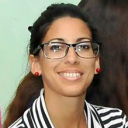 By Leyanis Infante Curbelo
By Leyanis Infante Curbelo
leyanis@juventudrebelde.cu
A CubaNews translation.
Edited by Walter Lippmann.
Last week, between April 23 and 26, the 12th International May First Workshop took place at the Palacio de los Torcedores, in the Cuban capital. It is an event organized by the Cuban History Institute (IHC) and the Central de Trabajadores del país (CTC) that brings together researchers, sociologists, historians, professors and trade unionists from various countries to exchange views on the current economic and political situation, and the role of workers and trade unions in the search for a global balance where relations of equity and social justice are paramount.
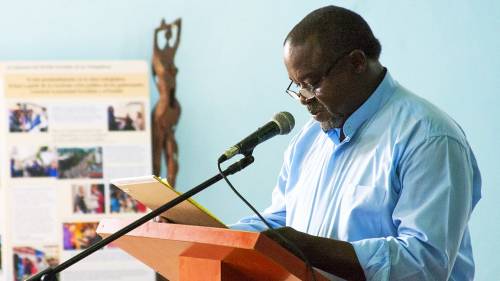
Willie Head, small farmer in South Georgia, veteran of many battles of black farmers to keep their land. Author: Maykel Espinosa Rodríguez Published: 02/05/2018 | 02:53 pm
As in previous editions of the event, many of the foreign participants are also part of the First of May Brigade, which at this time comes to the island to join the celebrations for the International Workers’ Day that we hold in Cuba.
This is the case with a group of trade unionists from the United States, mostly members of the Socialist Workers Party in that country. This May Day, they packed their backpacks and headed to the Plaza de la Revolución. They joined thousands and thousands of Havana residents in saluting the continuity of the Cuban Revolution. But a week ago, invited by the IHC, they shared, in a panel entitled From Clinton To Trump: How The Working People Of The United States Are Responding To The Anti-Worker Offensive Of The Bosses, their parties and their governments, their most vivid experiences in the struggle for class rights in the heart of the flagship country of world capitalism.
As a reflection of its social structure, this panel attempted to cover representatively the most disadvantaged and discriminated groups in its country: women, blacks and immigrants, and among them, members of those economic sectors that have been historically most oppressed and beaten, and who have therefore had to wage long struggles for their labor rights.
This is the case of Alyson Kennedy, a long-time coal mine worker and member of the first wave of women who broke the barriers that excluded them from jobs in underground mines. In the controversial 2016 U.S. election, she was a Socialist Workers Party presidential candidate.
Or Willie Head, a small farmer in South Georgia, veteran of many battles of black farmers to keep their land. Their struggle is part of a history that dates back more than a century and a half.
For these Americans, who defend the principle that a socialist revolution within their country’s capitalist system is possible, the Cuban Revolution represents the most concrete and current example of these aspirations.
In the opinion of Martín Koppel, journalist for the weekly El Militante, sharing these experiences in Cuba has been very important because, outside the United States in general, the situation of its workers and their struggles is not known; rather, the media conveys the idea that everything is fine with them.
Mary-Alice Waters, a member of the Political Bureau of the Socialist Workers Party, president of Pathfinder Publishing and organizer of the panel, told JR that the idea was to try to answer two main questions from each participant’s perspective: whether after Donald Trump came to power the working class that gave him his vote had also experienced a movement to the right; and whether it was actually possible for a social revolution to triumph in the United States.
On the first, Waters and the other panelists mentioned the teachers’ strike that has taken place in West Virginia recently and that has achieved a significant wage increase in this state’s public sector. Coincidentally, it’s one where Trump won with an overwhelming majority (68 percent) and where the unemployment rate is double the national average. The workers organize demands, she pointed out, because their situation has not improved at all.
In the recent history of our country, we have seen how the working class has waged its struggles at different times in our history and we have gained confidence in what it is capable of doing, said Waters. To illustrate, she mentioned the workers’ struggles of the 1930s, the mass struggle of Black people to overthrow the system of racial segregation in the 1960s, and the popular demonstrations against the Vient Nam war. All of them, she points out, have shown us how the class struggle does have the potential to change governments.
In his closing remarks of the XII International May Day Workshop, René González Barrios, President of the IHC, thanked the American delegation for its participation and affirmed that every time the American people become freer and more independent, the world will be too.
Alyson Kennedy: A Voice for the Excluded

Alyson Kennedy: A Voice for the Excluded
Almost everyone believes that only two parties, the Democratic and the Republican, participate in the U.S. presidential election, but others persist in carrying a different class view even though the system invisiblizes them.
Posted: Saturday 07 May 2016 | 08:43:03 pm. Updated: Friday 22 September 2017 | 12:03:16 am.

By Juana Carrasco Martín
juana@juventudrebelde.cu
A CubaNews translation.
Edited by Walter Lippmann.
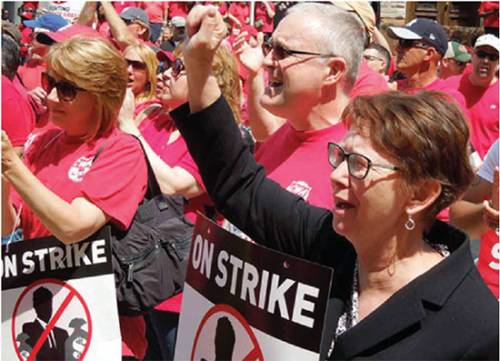
The socialist leader at a rally of striking Verizon workers in Treton. Author: Tony Lane/ Militant Published: 21/09/2017 | 06:31 pm
The electoral campaign in the United States is reaching its climax in the selection of candidates by the two big parties. It’s a system that hides behind the spectacle their supposedly being defenders of the same interest, that of big capital, of the world of finance, of the arms industry, of the polluting sectors of the earth’s climate, of the exploiters of the workers of the courtyard and of the wealth and goods produced by professionals, workers and peasants in a good part of the world, where the transnationals of the empire plunder and intervene.
However, made invisible by the media that are part of the show, there are small parties, not infrequently persecuted, ignored, and excluded, that take the real interests of the working people to the streets and to the ballot boxes where it is possible to reach these workers.
A woman, small in her physique, with an easy smile, and simple words, convincing and firm, is the bearer of that other face, which is not exactly of the same coin. On the contrary, she reveals and denounces what actually happens in the United States this 2016.
Alyson Kennedy is a presidential candidate for the Socialist Worker Party (SWP), on whose ticked she is accompanied by Osborne Hart, a decision announced last February 12.
She doesn’t do it from the outside, nor from the theory of class struggle. Today, Alyson Kennedy is a Chicago worker in the textile garment industry at Walmart, the world’s largest chain of retail stores, denounced in many countries for the exploitative conditions to which it subjects its workers and employees.
“That’s why I, as a candidate for the Socialist Workers Party, and my running mate, Osborne Hart, and the other candidates for the Senate and other positions have been getting a good reception among the workers, because we are open to discussing a revolutionary perspective,” she says.
“The workers know that they are being exploited, they know what is happening in the country and in the world,” says Alyson Kennedy, who points out that one of the aspects on which they give their views in this electoral campaign is to oppose U.S. participation in the Middle East. “And many workers are also open to hearing about the Cuban Revolution,” he adds.
She mentioned Cuba, what motivated her presence in our country, coinciding with the May Day celebrations?
I came to Cuba as part of a delegation of women workers who are fighting against police brutality, of which I have also been a victim, in the city where I live, Chicago.
“This is my first time in Cuba, although I know a lot about the island, my party does educational work on Cuba and for many years we fought for the freedom of the Five and we do educational work on the need to end the embargo (blockade).
“In spite of the short time I have been here I have been able to see the country concretely, and that will help me a lot to be able to explain to the workers there why Cuba is an example for us. If Cuba was able to create a Revolution and create a society that addresses the needs of the workers, we can do it in the United States as well,” emphasizes the socialist leader.
The reasons for seeing this possibility clearly and surely explains it: “We have a history of struggle also in the United States. The workers of the United States must become aware of what they have achieved through the struggle. We must realize the power we have and our own worth.
She closes her words to the readers of Juventud Rebelde with this committment:
“I want you to know, that we are back to redouble our efforts in the fight against the blockade, for the return of the occupied territory in Guantánamo, which is Cuban, and having been here helps us to realize why it is necessary to continue in the battle for our rights.
=================
Printed version in Spanish:
http://www.juventudrebelde.cu/internacionales/2016-05-07/alyson-kennedy-una-voz-por-los-excluidos/imprimir
PDF of the original also available
The challenge of assuming a new concept

The challenge of assuming a new concept
Marriage has been consolidated as a charter of social and citizen protection that guarantees numerous possibilities. It establishes limits, roles and rights between people, towards them and from them towards the State. The formulation of the article in the Draft Magna Carta has generated controversy. The aim is to break down stereotypes and avoid any form of discrimination.
 By Ana María Domínguez Cruz
By Ana María Domínguez Cruz
digital@juventudrebelde.cu
and
 Yuniel Labacena Romero
Yuniel Labacena Romero
yuniel@juventudrebelde.cu
Posted: Saturday 20 October 2018 | 10:04:22 pm.
A CubaNews translation.
Edited by Walter Lippmann.
DIALOGUE:
So, I don’t agree with Article 68.
Aren’t we in the 21st Century?
Or are we still stuck in the 19th Century?
Love. That is the fundamental reason why two people decide to unite their lives and the basis on which, if they wish, they form a family. Legalizing this union or not is not the most important thing, some think, and jurists insist on the need to value marriage as a legal institution, guarantor of rights for those involved.
Cuba proposes in its Draft Constitution, specifically in article 68, that marriage is the voluntarily agreed upon union between two persons with the legal capacity to do so, in order to make a life in common…, which gives way to the possibility of equal marriage, and it is logical that controversy is awakened in the debates.
As Homero Acosta Álvarez, Secretary of the Council of State, recently pointed out at, the inauguration of the International Congress of Lawyers 2018, today’s draft was confronted with the choice of maintaining the concept of marriage as constitutional (a content barely regulated in the constitutions) or moving away from that and leaving its [further] development to the law.
“It was decided to maintain this configuration and to assume the challenge of the new concept, knowing that its inclusion could generate disagreements, due to cultural reasons, prejudices and stereotyped visions, these are not transformed overnight,” said the member of the Commission responsible for constitutional reform.
“If the Constitution proclaims broad recognition of the right to equality, why should it limit people of different sexual orientations from getting married? It will have to follow this concept anchored in visions already overcome by time or it will have to be modified and recognized as a right, as is gradually happening at the planetary level.
“The positions in front of this regulation are those who prefer to maintain the concept of the current Constitution; those who favor the current proposal in the Project; those who accept the civil recognition of de facto couples and not marriage. There are others who agree, but limit the right to adoption and, finally, some advocate the concept of “two or more persons”. In short, a diversity of criteria that have to be evaluated like others with the rigor and depth that is required,” he said.
A wonderful way to start thinking
Lilian, divorced and with two children, also agreed with the ideas explained by the Secretary of the Council of State. She thinks this variation of the concept of marriage is a wonderful way to begin to think. “Each person has the absolute freedom to love another and the most important thing is that affection takes precedence in that relationship. If it is a couple of the same sex, love is still the most important thing. And if now there is the possibility that the legal protection of their rights is guaranteed, it’s better.
She refers at this point to the fact that there are still those who believe that homosexuality is a disease, synonymous with promiscuity, brazenness and few moral values. “We are happy to the extent that we can live fully, without hypocrisy and without maintaining appearances. This is a step forward from the social and the cultural. We have to recognize love, and I see it as just,” she says.
For his part, Mario Román -who has lived with René Miguel for four years- values positively that these guarantees are believed, even when they aren’t interested in getting married. “Relationships have the same value. The same rights must be guaranteed for everyone, and marriage is that necessary justice when one of the two is missing, the other has legal protection. Cuba has always fought for equality and we cannot allow people’s sexual orientation to be a cause for discrimination,” he says.
Marta Emilia still remembers with sadness what happened in her neighborhood when Angel died. “We all knew that Victor was his partner for more than 15 years and that Angel’s family always turned their back on him because of his choice. Not even when he was hospitalized did anyone come, much less when Victor spent more than a year taking care of him at home. But when Angel died, nephews and cousins showed up to take the house and Victor was left homeless. That was wrong and I hope those stories won’t happen again.
==
According to Rafael, another interviewee, “our society is not prepared for this modification of the concept of marriage. Therefore, we must defend the ”original design of the family” and what the current Constitution states,” he says. “We have to think about the new generation, when they see two men or two women holding hands, in the street or kissing. That was always frowned upon and I still see it the same way,” he says.
From the poll carried out by this newspaper and from the comments left on our web edition, other criteria also emerge against it: the negative effects on the birth rate, the transformation of the traditional family model, the problem of adoption and the world’s own cosmovision. While these reasons are used in disagreement with what is stipulated in article 68, others believe that it is not possible to try to prohibit a decision of a personal nature.
Katia, married for the second time, says that the myth that having a child in a homoparental home will lead to homosexuality must be banished. “Those who today have relations with people of the same sex did not learn it in their homes, where they lived with their father and mother. Besides, that’s not the issue the constitutional reform is talking about; there’s no need to mix things up,” she says.
And Felicia says our society has yet to go through the necessary transformations in its thinking. “Even in the treatment of men towards women we lack much. It’s enough to listen to some flirtations compliments that become offensive. Tolerance is not the concept, but acceptance and respect for coexistence among all.
Necessary progress
Julio César González Pagés, who holds a doctorate in historical sciences, recognizes that, one hundred years after the approval of the Divorce Law in Cuba, which was very controversial, it is magnificent that this good news arrives. “The country is placed in a position of advancement, because it is something that is closely related to human rights. On a global level, very few countries have endorsed this in their Constitutions, which is why Cuba would be among the few that grant that right.
“First and foremost, the concept of respect for the equal rights of all must prevail. It is not a question of imposing oneself, but of dialoguing among all and contributing to a full education among citizens. It is praiseworthy that, in a nation where homophobic thought was deep-rooted, it now there is a determination that this does not happen again and that we are seeing ourselves as an inclusive society.
“It is also important to stress that this is not just a right for lesbian, gay, bisexual, transgender and intersex (LGBTI) people, but for everyone, because it is the respect that we have for all rights. It is not a question of all people rushing out to get married, because many, homosexual or heterosexual, are not interested in formalizing their relationship in this way at this time, but the existence of the right is the essential thing”, he points out.
The modification reflected in article 68 – which departs from heteronormativity and machismo – is in line with the Conceptualization of the Cuban economic and social model of socialist development. This defines as principles that sustain the model and its main transformations respect for diversity and confronting all forms of discrimination due to skin color, gender, gender identity and sexual orientation.
It is praiseworthy that in a nation where there was a deep-rooted homophobic thought, it is now demonstrated that there is a will that this not happen again and that we are seen as an inclusive society.
It is also due to a culture of rights and social justice that the Cuban Revolution has promoted. It has has won for its citizens what in many nations are unthinkable guarantees, such as safe, legal and free abortion; equal pay for equal work for women and men; maternity and paternity leave; family planning services; sex education in school…
But there are more elements. In the words of the advisor of the Ibero-American and African Network of Masculinities, this is related “to the policy carried out by the country from the campaigns carried out against homophobia and transphobia. Legislation shows that educational and awareness-raising campaigns in respect to free and responsible sexual orientation and gender identity work if there is the political will of the country and the movement of people.
González Pagés warns that there is lots of opposition from groups of people who only see the couple as a means for reproduction or who only accept the family scheme of decades ago, made up of mother, father and children. “They do not understand that the family today includes grandparents, uncles, single mothers, among other archetypes, and that the legalization of a union does not necessarily entail having children.
“This process must not lead to aggressions, offenses or impositions. All processes have people in favor and others in disagreement, which are also included. But in the end, the logic of an educated, educated, highly literate country will mean reason will prevail, as has happened with other laws.
“The new rights of the 21st century cannot frighten us. We are not a backward-looking country because part of the population disagrees, on the contrary. The difference exists and what it is about is to argue, to convince, to dialogue and in no case to impose by force”.
The specialist recalls that Cuba has always been an advanced country, with controversies and confrontations regarding many issues, such as racial and gender discrimination. “Every movement generates these reactions and you have to be prepared for that. Some believe the birth rate will fall in the country because they think this is a process of proselytism in favor of marriage between people of the same sex, but that’s a mistake, it is not so.
“It is a question of legalizing unions that already exist, and so that people do not feel unprotected,” warns the specialist, who assures us that he is proud that “our Draft Constitution is advanced and revolutionary, among other reasons for making this modification. It shows we have a society with all and for the good of all, as is embodied in the Preamble to the Draft Constitution.”
Useful legality
According to the study Deconstructing Myths about Same-Gender Couples from the National Center for Sex Education (Cenesex), the scarce work carried out in the country denotes the existence of similar characteristics among families made up of heterosexuals and homosexuals (commitment, capacity to resolve conflicts, distribution of roles and functions, shared feelings and intimacy, among other indicators).
====
The criteria shared by the interviewees with whom this newspaper spoke, as well as article 68, are in line with other postulates of the Draft Constitution, particularly article 40. It states that “all persons are equal before the law, are subject to equal duties, receive the same protection and treatment from the authorities and enjoy the same rights, freedoms and opportunities, without any discrimination for reasons of sex, gender, sexual orientation, gender identity, ethnic origin, skin color, religious belief, disability, national origin or any other distinction injurious to human dignity”.
Perhaps for this reason, Gina, who has been together with Dania for three years, will not rush to a law firm to legalize her union. “We are not interested in getting married, but it is a right, a protection, an option for those who need it in their life history; and that our Constitution, like others in the world, includes it, has great value”.
Another of the interviewees tells us: “The stigmata and social schemes must crumble, because the treatment between people is sometimes hostile, unjustly. It is not necessary to hide if you love someone and acting cleanly is what favors peaceful coexistence. When ten years pass, we will be able to analyze what has happened on the island and if the taboo persists, but legally recognizing what already exists is a step forward.
Law cannot remain a perpetual slave of social backwardness, even though at some point it may collide with part of the social spectrum. In its transforming mission, it is also responsible for promoting development.
In this sense, Olga Mesa Castillo, Doctor of Juridical Sciences, titular professor and consultant to the Faculty of Law of the University of Havana, remembers that since the promulgation, in 1975, of the Family Code as an independent legal text of the Civil Code, our country was ahead in regulating institutions such as that of civil marriage. We did so in a liberating manner, stripping it of the requirement of physical-sexual capacity; of divorce for just cause, and without guilt; and with a special regulation on de facto union, equating it with civil marriage.
Furthermore, the President of the Cuban Society of Civil and Family Law, of the National Union of Jurists of Cuba, comments that the protection of concubinage was also introduced, and the country was a pioneer in including in its 1940 Constitution the equalization of de facto union with civil marriage.
“Marriage in Cuba today is a voluntary union, without a contractual, legal or business sense, and is not exempt from duties and rights. It is legislated that upon the death of one of the members of the couple, the one who survives is protected by law for the enjoyment of some economic or material benefits,” he says.
The National Law Prize winner regrets that, in a general sense, the population has not worried about knowing about legality and worse still, that many have decided to live outside it, not only concerning marriage but also paternity.
“Marriage means that you are fortunate enough to have a person in your life who also protects you from a material point of view. As a consensual union, there are already same-sex couples who live together and if they want to formalize it before the law, I see no problem in that. On the contrary, problems arise if you want to resort to the law when there is no remedy.
The incorporation of a broader concept of marriage is only the first step on the road to the approval of a new Constitution that will ensure greater legal guarantees for the specific LGBTI population. As Mariela Castro Espín, director of Cenesex, has warned, article 68 is not about taking away the rights of heterosexual couples, but about giving them to those who had been denied them.
Homero Acosta Álvarez recalled: “This is not the first time we have faced these challenges. Let us remember in history the conflicts to recognize women’s right to vote or the establishment of divorce or, in our case, to incorporate the equality of rights between men and women and the equal responsibility of spouses, according to our Family Code.
“In our opinion, Law cannot remain a perpetual slave of social backwardness, even though at some point it may collide with part of the social spectrum. In its transforming mission, it must also promote development,” he said.
| M | T | W | T | F | S | S |
|---|---|---|---|---|---|---|
| 1 | 2 | 3 | 4 | 5 | 6 | |
| 7 | 8 | 9 | 10 | 11 | 12 | 13 |
| 14 | 15 | 16 | 17 | 18 | 19 | 20 |
| 21 | 22 | 23 | 24 | 25 | 26 | 27 |
| 28 | 29 | 30 | ||||

